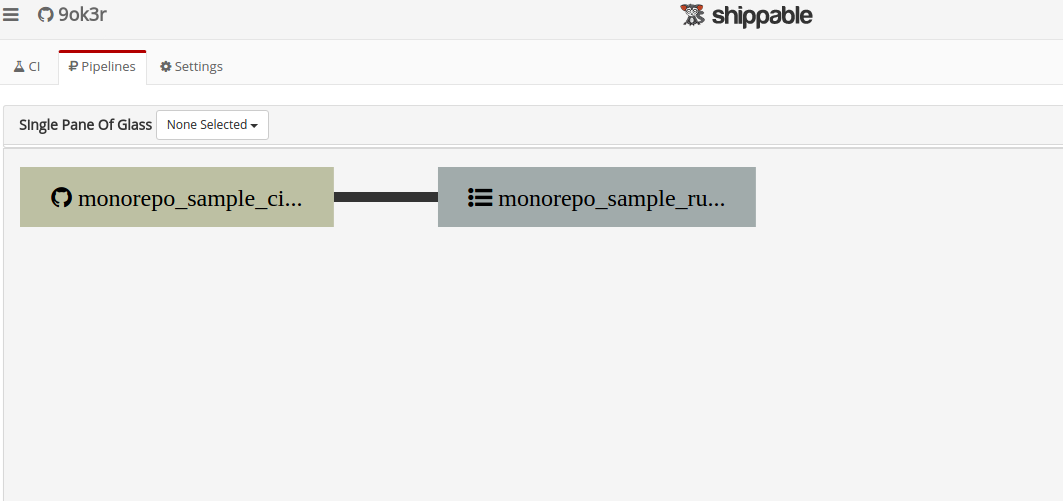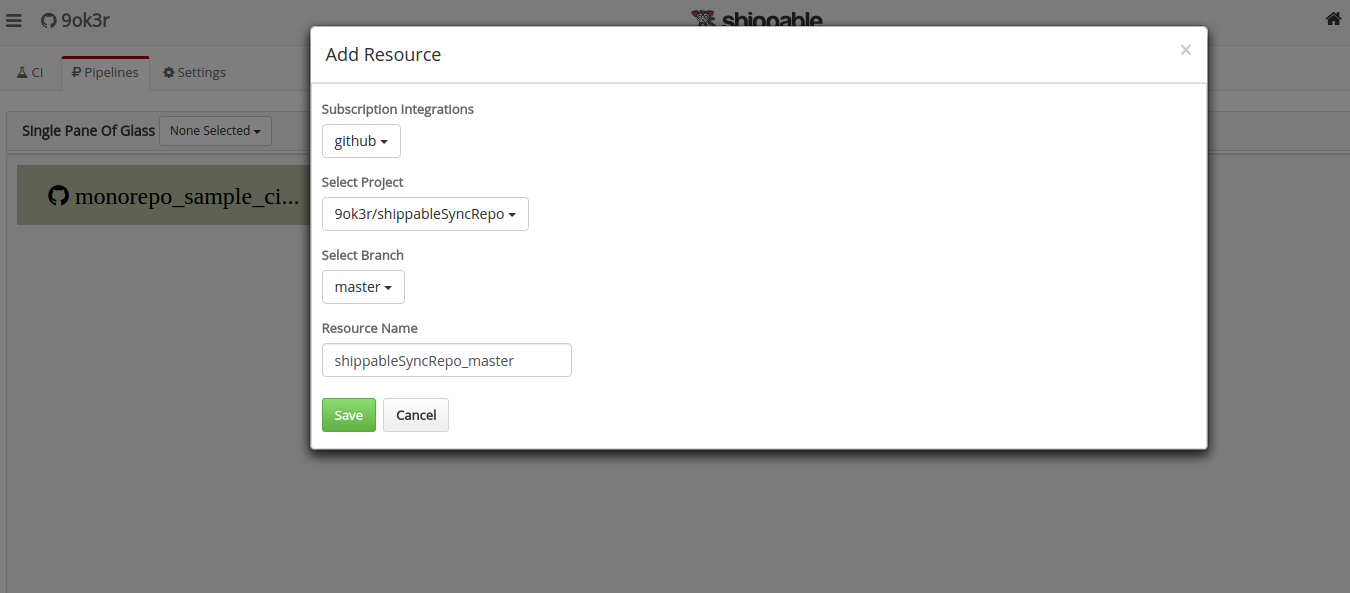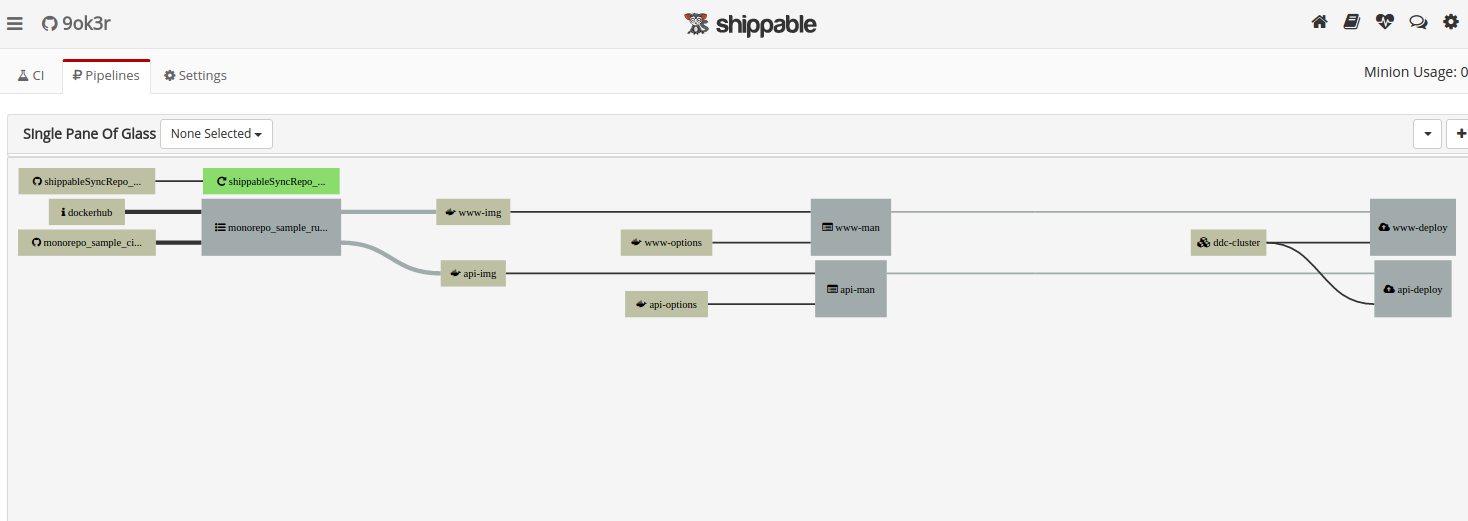Build, Test, and Deploy Apps Independently From a Monorepo
Set up your pipeline so that when changes occur to a project in the monorepo, the CI for that corresponding project is triggered and a Docker image is built and deployed.
Join the DZone community and get the full member experience.
Join For Freein our previous blog posts , we've shared our thoughts and experiences on our approach with monorepo. we received a few questions after that blog on how ci and deploys go with the monorepo.
in this article, we will learn how to run ci and build and deploy applications independently from a monorepo. on each pr and commit, we will run tests on the service that has changed build a docker image from it and push it to a registry. this image can then be deployed to a cluster on any supported container service . we will use shippable for this scenario.
setup
our
monorepo
has two projects. both of them are simple node js apps. www is a front-end app and will run selenium tests. api is the backend app, which we will test using superagent and chai. the initial setup can be a bit tricky and depends on how projects in your repository are structured. detecting what has changed in the repository is important. we will call a
shell script
from
shippable.yml
that will detect what has changed and trigger tests. when all our test pass successfully we will build a docker image and then push it to the registry.
shippable.yml
:
language: node_js
services:
- selenium
build:
ci:
- ./detectchangedfolders.sh
this yaml l will run the below shell script, which will detect changes in folders (i.e., services in our repository and run tests). also note that we are specifying all the services required in
shippable.yml
.
#!/bin/bash -e
export ignore_files=$(ls -p | grep -v /)
detect_changed_folders() {
echo "detecting changes for this build"
folders=`git diff --name-only $shippable_commit_range | sort -u | awk 'begin {fs="/"} {print $1}' | uniq`
export changed_components=$folders
}
run_tests() {
for component in $changed_components
do
echo "----------------------------------------------"
echo "$component has changed"
if ! [[ " ${ignore_files[@]} " =~ "$component" ]]; then
echo "-------------------running tests for $component---------------------"
cd "$component"
./run.sh "$component"
cd ..
else
echo "ignoring this change"
fi
done
}
if [ "$is_pull_request" != true ]; then
detect_changed_folders
run_tests
else
echo "skipping because it's a pr"
fi1. enable
enable the project on shippable. now, when navigating to the pipelines tab, you can view your project on spog.

on every build triggered, the changed folders are detected and an image is built and pushed to the registry. in our example, the
run.sh
file that we have in every folder is responsible for triggering tests, building an image, and pushing it to the registry.
2. deploy
now that our images are built, we will use pipelines to deploy these images. we will begin our resources and jobs in
shippable.resources.yml
and
shippable.jobs.yml
,
respectively.
here is how we will define resources and jobs for our pipeline:
resources:
- name: api-img
type: image
integration: dockerhub
pointer:
sourcename: "chetantarale/sampleapp"
seed:
versionname: master.3
- name: www-img
type: image
integration: dockerhub
pointer:
sourcename: "chetantarale/sampleapp"
seed:
versionname: master.3
- name: ddc-cluster
type: cluster
integration: ddc-cluster
- name: www-options #required
type: dockeroptions #required
version:
portmappings: #optional
- "51000:51000"
- name: api-options #required
type: dockeroptions #required
version:
portmappings: #optional
- "50000:50000"
- name: dockerhub
type: integration
integration: "dockerhub"
www-img
and
api-img
are the two images that will be built when the ci job runs. these images are the outs from the ci job.
dockerhub
is a resource of type integration that points to the registry where we will push our image.
ddc-cluster
is an integration of type cluster where we will deploy our app.
www-options
and
api-options
are the options that can be appended to a docker image to be pushed.
we will define the following jobs in our job's yaml:
- a runci job that builds our images.
- two manifest jobs to generate a manifest.
- two deploy jobs that deploy our app.
jobs:
- name: monorepo_sample_runci
type: runci
steps:
- out: api-img
- out: www-img
on_success:
- script: echo 'on success !!!!!'
on_failure:
- script: echo 'failed job .... :('
- name: www-man
type: manifest
steps:
- in: www-options
- in: www-img
force: true
- name: www-deploy
type: deploy
steps:
- in: www-man
- in: ddc-cluster
- name: api-man
type: manifest
steps:
- in: api-options
- in: api-img
force: true
- name: api-deploy
type: deploy
steps:
- in: api-man
- in: ddc-clusternow, push these files and add this repo as syncrepo from shippable ui . shippable will read the jobs and resource's yamls and create your pipeline.


we have successfully set up our pipeline. for any changes to a project within in the monorepo, the ci for that corresponding project is triggered and a docker image is built and deployed.
Published at DZone with permission of Chetan Tarale, DZone MVB. See the original article here.
Opinions expressed by DZone contributors are their own.

Comments